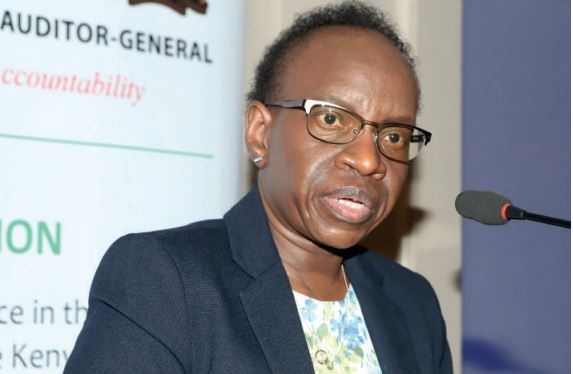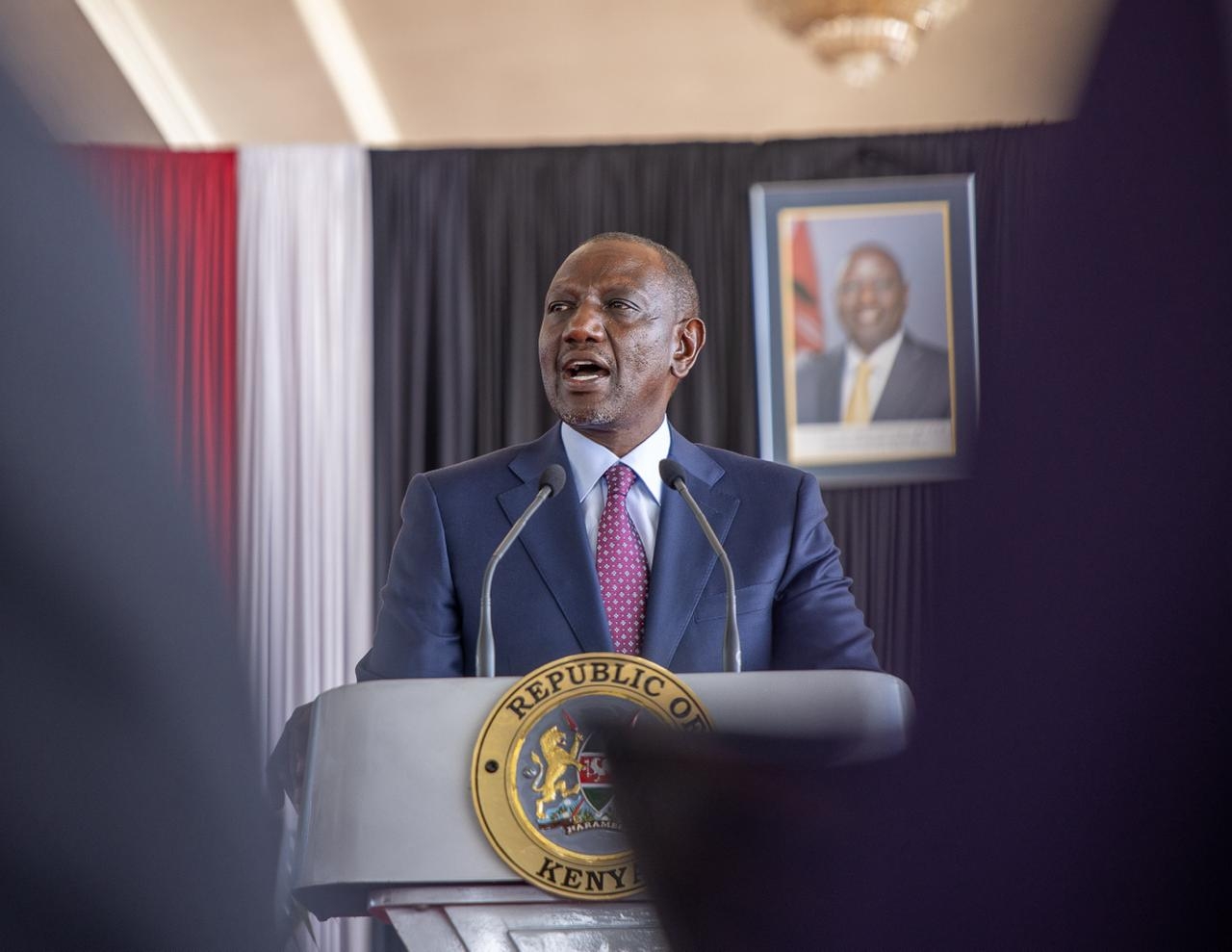

Deputy President Kithure Kindiki has reaffirmed the government’s unwavering commitment to revitalizing Kenya’s coffee sector through wide-ranging reforms, debt relief, and increased farmer earnings, calling the sub-sector “black gold” with the potential to transform rural livelihoods.
Speaking at Kavutiri Coffee Mills and later addressing farmers at Kavutiri Primary School grounds in Runyenjes, Embu County, Kindiki said the Ruto administration has already made significant progress in raising farmers pay from as low as Sh30 to as high as Sh150 per kilogram of cherry in some cooperatives—delivering on their campaign pledge of a guaranteed minimum of Sh100 per kg.
“We promised deserving pay for farmers and guaranteed minimum returns. In our manifesto, we promised to raise the pay to at least Sh100 per kg of cherry. We’ve surpassed that within two years in office. It is possible to go even higher,” said Kindiki.
To further boost productivity and farmer profitability, the Deputy President announced key interventions, including the timely delivery of subsidised fertiliser at a reduced price of Sh2,500 from Sh7,000, and upcoming plans to lower pesticide costs.
He noted that coffee farmers now receive payment within five days of sale at the Nairobi Coffee Exchange.
Kindiki also revealed that the government will waive verified debts owed by public coffee mills and cooperative societies.
Specifically, Sh176 million owed by Embu Coffee Mills will be written off.
“We are determined to clear only verified debts and end financial mismanagement,” he stated.
He emphasized that the forthcoming Coffee Bill 2025 and Cooperatives Bill 2025 will institute further reforms, including the introduction of a “one-license-per-actor” policy across the value chain—limiting roles in farming, milling, brokerage, and marketing to avoid exploitation and role duplication.
To support farmers access to credit, Kindiki noted the expansion of the Coffee Cherry Advance Fund from Sh2 billion to Sh7 billion.
He warned that some cooperative managers have taken high-interest loans despite the availability of government funds at more favourable rates, adding that the misuse of cooperative resources would be dealt with under the new Coffee Act.
“The governance of cooperatives must be streamlined. We will not allow mismanagement of coffee societies,” he warned, adding that misuse of farmers’ funds through unauthorized loans violates the Public Finance Management Act.
Kindiki stressed that the government will remain focused on delivery over politics.
“We don’t want to engage in petty politics. This is our government, elected by the people, and it must serve wananchi. We are working hard to fulfil our promises so that we have a scorecard to show in 2027.”
Beyond coffee, the Deputy President also announced broader infrastructure development plans. He pledged expedited completion of the Mau Mau roads, the Makutano–Meru dual carriageway, and other critical rural roads to ease trade and connectivity.
The government has allocated Sh576 million toward last-mile electricity connections in Embu to support economic activities.
Cabinet Secretary for Public Service, Human Capital Development and Special Programmes, Geoffrey Ruku, who accompanied Kindiki, assured farmers of better service delivery and praised the Kenya Kwanza administration’s strides in raising coffee prices.
He also promised proactive disaster management programs to safeguard livelihoods. Embu Governor Cecily Mbarire thanked the national government for its ongoing reforms but called for further support to modernize storage and processing facilities.
She said Embu County had set aside Sh25 million for a coffee storage project and appealed for national backing to install a color sorter and construct a warehouse to enhance value addition.
Runyenjes MP Muchangi Karemba echoed the need for sustainable financial support, urging the creation of a dedicated financial product tailored for coffee farmers to avoid competition for resources with other crops like maize.
“The reform of the coffee sector is a top government priority,” concluded Kindiki. “Clean leadership, fair pricing, and reliable markets will restore the dignity of coffee farming in Kenya.”














